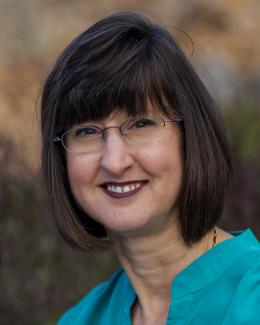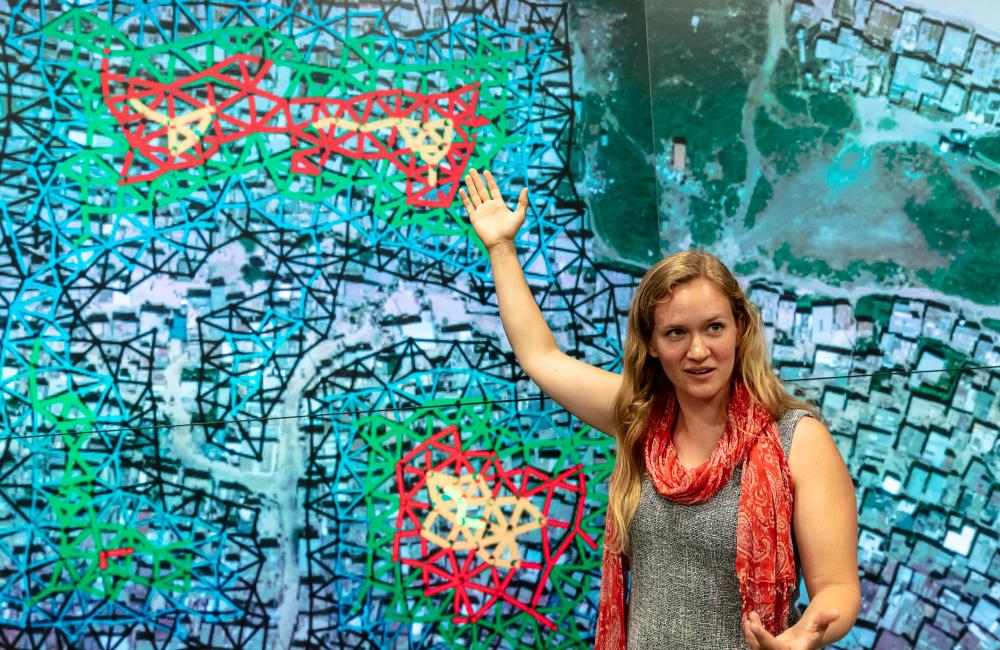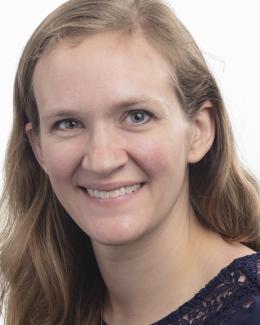Christa Brelsford's dissertation research marked the first-ever comprehensive analysis of the water-conserving effects of one of the most widely used water conservation programs in the western United States.
Christa Brelsford, a Liane B. Russell Fellow at the Department of Energy’s Oak Ridge National Laboratory, decided as a teenager growing up in rural Alaska to use her empirical mind and math and science skills to do good in the world.
An adventure trip to Central America in her early 20s made it clear to her that a lot of the core challenges in the developing world are tied to infrastructure. “You can’t do much of anything without water and power and a functioning transportation system,” she realized. “I thought I could help people build better infrastructure, so I decided to get a civil engineering degree.”
Understanding over time that there are underlying, more systemic reasons some nations lack infrastructure, Brelsford pursued a master’s degree in climate and society, which examined how social processes interact with climate change. However, she said, the degree wasn’t research oriented, and she felt that it didn’t help her develop a broad enough understanding of how people could actually bring about change in the world.
Brelsford went on to earn a PhD in sustainability at Arizona State University. “I thought a PhD program would give me the opportunity to ask the questions I wanted to—how do we understand interactions between social processes and physical processes, how do people interact with the world, how do physical environments shape social systems—and I wanted to understand what we can do to address the large-scale systemic problems that societies now face,” she said.
Brelsford’s PhD dissertation focused on urban water consumption in Las Vegas, Nevada. She examined the effects of population growth, infrastructure change and conservation policy on residential water demand. Brelsford’s research marked the first-ever comprehensive analysis of the water-conserving effects of one of the most widely used water conservation programs in the western United States. She also implemented a new empirical method to explore counterfactual scenarios in a microeconometric context. The method involves asking “what if?” questions about what city-scale outcomes might have been if infrastructure, policy or weather conditions had developed differently than they actually did. These scenarios were used generate new ideas for addressing urban water management challenges more effectively.
Brelsford’s mentor is Budhu Bhaduri, ORNL’s National Security Emerging Technologies Division director. Her fellowship research aims to develop empirical and theoretical tools to increase our understanding of urban systems, how they interact with and are influenced by the broader physical environment and how collective social processes co-evolve with urban form. Brelsford’s research interests include using empirical methods, especially spatial analysis and remote sensing, to link individual choices to aggregate outcomes to build better theories about how cities and urban water systems function.
Brelsford holds the 2014 Paraclimbing World Championship title for rock climbing. Ever adventurous, she took her oldest child, then 6 months old, to northern Spain for the competition. These days, Brelsford and her family like to go to Obed Wild and Scenic River National Park on the Cumberland Plateau, which she says has quality bouldering that even a 5 year old can walk to. Brelsford also serves on the board of Haiti Partners, a nonprofit education-focused organization, helping the organization build a community of students, parents and teachers who are prepared to be agents of change in their community and country.
UT-Battelle LLC manages ORNL for the Department of Energy’s Office of Science, the single largest supporter of basic research in the physical sciences in the United States. The Office of Science is working to address some of the most pressing challenges of our time. For more information, please visit https://energy.gov/science.




